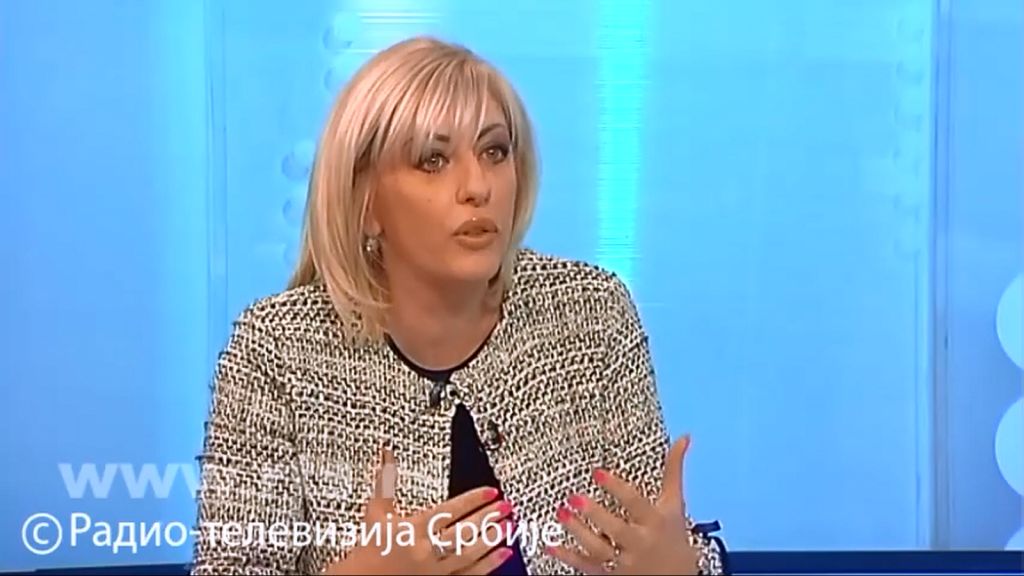
Within the EU Enlargement Strategy for the Western Balkans, Serbia has undoubtedly been recognised as a leader in the process, Minister of European Integration Jadranka Joksimović has said for RTS.
As a guest in the RTS Dnevnik, Joksimović stated that the visit of Johannes Hahn to Belgrade the day after the publication of the Strategy was a clear signal that Serbia was to be counted on.
The Minister has pointed out that this is a big incentive for citizens and a chance for the country’s progress.
“Regardless of the numerous objections to certain segments of the Strategy, this is a moment that we should not politically miss out on,” Joksimović highlighted.
She added that the EU obligated itself by the Strategy that it would be more solidary and stronger by 2025 to accept new members.
“The document regenerates the policy and strategy of enlargement. Serbia has a leading position in this regard,” the Minister said, adding that this was a strong political signal even with all the obstacles on that path.
Joksimović said that successful countries must not lose political momentum and miss the chance that may emerge. She also deems that the Strategy is extremely important for the atmosphere among the citizens and the public, since all that Serbia has been doing is met with international valorisation.
“If you are recognised as a team player, you will have more chances. It is the same in international relations,” the Minister stated, adding that it is vital that we work harder on reforms and all other issues of importance.
She noted that we should be working on these issues regardless of the European integration and that integration represents a mechanism pushing us forward.
“If you are constantly returning to the past, you will hardly head towards a better future,” stressed Joksimović.
Application of agreements reached so far
As regards the dialogue between Belgrade and Pristina, the Minister recalled that it is a bilateral dialogue, with mediation provided by the EU. She said that, in order for us to reach a legally binding agreement, it is necessary to continue the dialogue, as well as to apply all agreements reached so far.
Joksimović stated that one of the most crucial agreements is the one concerning the CSM, adding that its implementation is urgent.
When everyone fulfils the already agreed arrangements, the process of finding a compromise solution will continue, said the Minister.
She also indicated that a solution will be sought where we will not recognise the unilaterally declared independence of Kosovo, but where we will, on the other hand, normalise relations and protect our interests, including certain concessions, as that represents the essence of the dialogue.
As regards alignment with the EU's foreign policy decisions, Joksimović stated that there is a negotiating framework with Serbia, as well as the Stabilisation and Association Agreement, whereas the adopted Strategy is an expression of political will.
The Strategy presented stronger expectations in the sense that those who have made the most progress in the integration process shall more extensively align their decisions with those of the EU foreign policy. However, Joksimović commented that we have to align our policy by the time of accession and that expectations are clear.
“We refer to the negotiating framework and obligations and we will continue to negotiate in this sense,” concluded Joksimović.
Speaking about the support provided to the Western Balkans by the newly-formed ruling coalition in Germany, Joksimović stated that Germany was a motor and one of the most significant countries of the EU.
The Minister deemed that it was therefore crucial that support was given by the new German government and that it represented a very good signal and sign that the enlargement policy would not lose momentum.
She pointed out that we should use this opportunity so that, in seven or eight years, we would be able to say that we have successfully changed our country.
All talks are beneficial
Speaking about the upcoming visit by President Vučić to Zagreb, the Minister stated that all talks are beneficial. She noted that it is not always easy to maintain the enthusiasm of goodwill in the light of messages that could be heard from Croatia, but that President Vučić and the Government have shown good will on several occasions.
“And that is exactly why, if you are responsible, there is no reason to avoid dialogue and I think that is very good,” stated Joksimović.
She added that she does not expect all problems to be solved, but said that it is necessary to talk about the future and to find our common interests.
According to her, if we keep talking about the past we cannot talk about cooperation; and yet we have to cooperate because we are the closest neighbours.
“All talks are beneficial and provide a new chance”, stated Joksimović.
(source: RTS)





